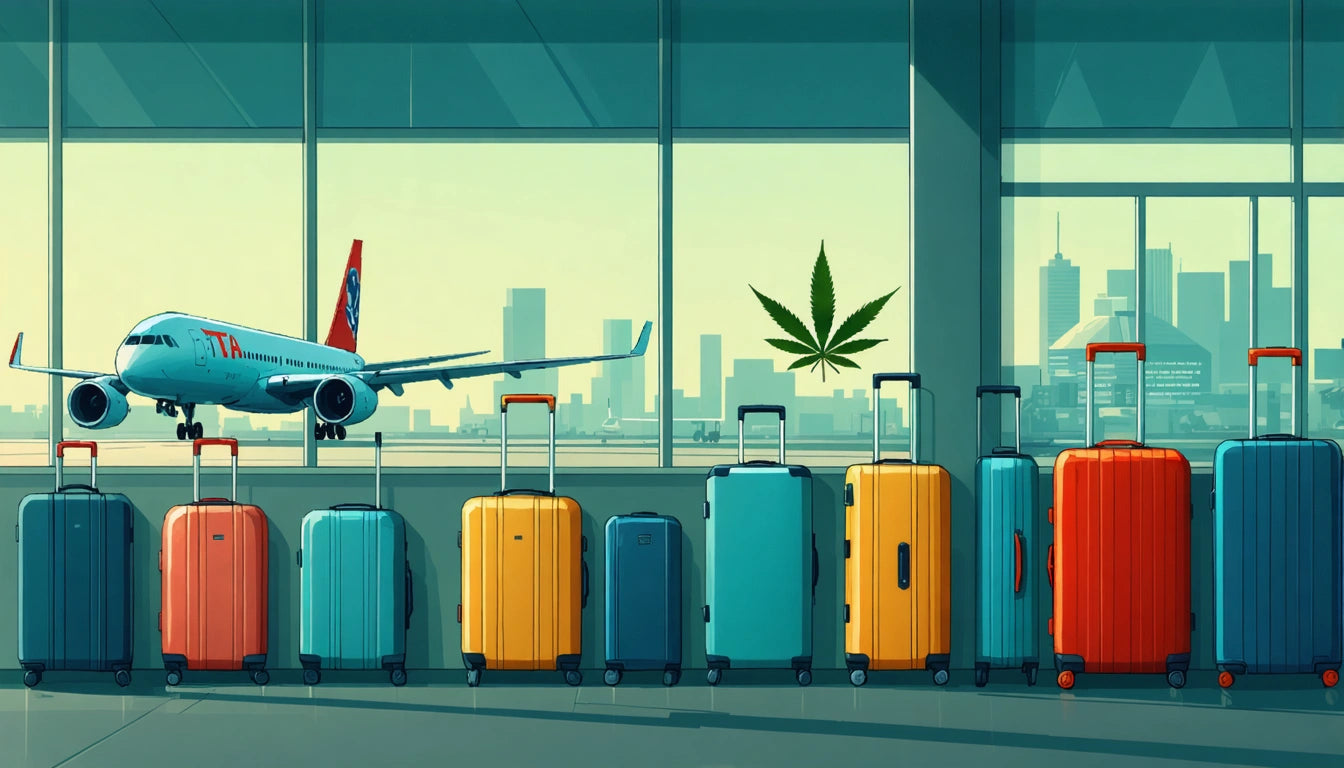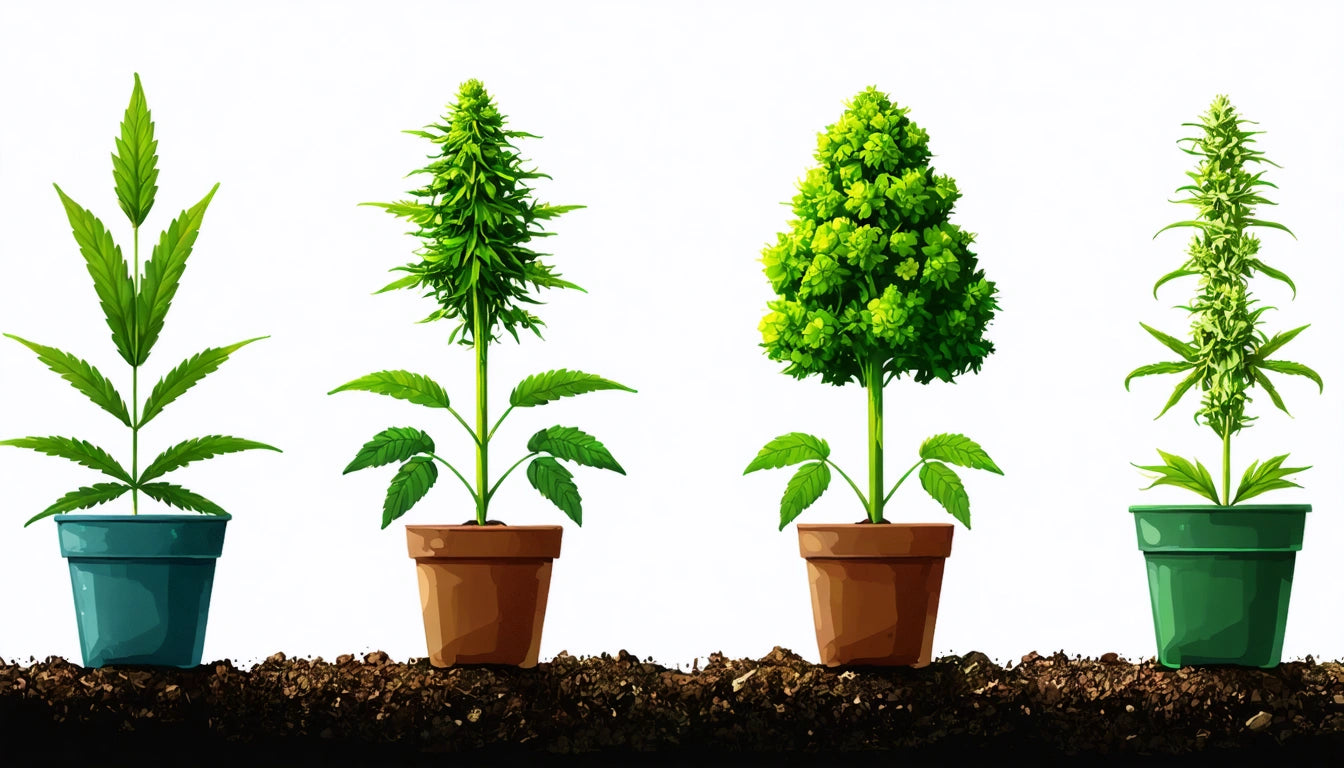Table of Contents
- TSA's Official Stance on Cannabis
- How TSA Can Detect Cannabis Products
- What Happens If TSA Finds Weed in Checked Luggage
- Carry-On Considerations for Cannabis Products
- State vs. Federal Law: The Legal Conflict
- International Travel Risks and Regulations
- Legal Alternatives for Cannabis Users Who Travel
Navigating TSA Regulations: What You Need to Know About Traveling with Weed
As cannabis legalization expands across the United States, travelers face increasing confusion about airport security protocols regarding marijuana products. Many cannabis users wonder: does TSA check for weed? What happens if TSA finds weed in checked luggage? This guide addresses these questions and provides essential information for travelers considering bringing cannabis products on flights.
TSA's Official Stance on Cannabis
The Transportation Security Administration (TSA) is a federal agency bound by federal law, which classifies marijuana as a Schedule I controlled substance. According to TSA's official policy on drug enforcement, security officers do not specifically search for marijuana or other drugs during routine screenings.
However, if TSA agents discover substances that appear to be marijuana or cannabis-infused products during normal security screenings, they are obligated to report it to local law enforcement. This creates a complex situation where the outcome depends largely on:
- The state you're departing from
- The state you're traveling to
- The amount of cannabis discovered
- The discretion of individual TSA agents and local police
How TSA Can Detect Cannabis Products
Many travelers ask: can TSA scanners detect weed? The answer involves understanding the technology used at security checkpoints:
X-Ray Scanners
Standard X-ray machines used for carry-on luggage can detect organic materials that appear as distinctive colors on scanner displays. While they cannot specifically identify cannabis, they can flag suspicious items for further inspection. As explored in this detailed analysis of airport scanners, the density and appearance of cannabis products can trigger additional screening.
Body Scanners
Advanced Imaging Technology (AIT) used for passenger screening can detect objects concealed under clothing but cannot specifically identify substances as cannabis. These scanners look for anomalies rather than specific materials.
K-9 Units
Some airports employ dogs trained to detect narcotics. However, many TSA canine units are now trained primarily for explosives detection rather than drugs. This varies by airport and security protocols in place.
What Happens If TSA Finds Weed in Checked Luggage
Checked luggage undergoes different screening procedures than carry-ons, but the question remains: what happens if TSA finds weed in checked luggage? The process typically follows these steps:
- TSA agents identify suspicious items during baggage screening
- The passenger is paged or contacted
- Local law enforcement is notified
- Consequences depend on local laws and amount discovered
In states with legal cannabis, officers may simply confiscate the product if the amount falls within legal possession limits. In prohibition states, travelers could face more serious consequences including arrest and criminal charges.
For those concerned about discretion when traveling with legal items, proper storage containers with odor-control features can help prevent unwanted attention, though they won't prevent detection if bags are physically inspected.
Carry-On Considerations for Cannabis Products
When considering can you bring weed through TSA in carry-on luggage, travelers should understand several key factors:
Vape Pens and Cartridges
Vape pens present unique considerations as detailed in this guide on traveling with vape products. While batteries must be in carry-on luggage per TSA regulations for lithium batteries, THC cartridges remain federally illegal regardless of state laws.
Edibles
Cannabis edibles may be less obvious than flower products, but they remain illegal under federal law. This resource on traveling with edibles explains the specific risks and considerations for these products.
State vs. Federal Law: The Legal Conflict
The core challenge when asking does TSA care about weed stems from the conflict between state and federal regulations:
- Cannabis may be legal in your departure and arrival states
- Airports operate under federal jurisdiction
- Airspace is federally regulated
- TSA is a federal agency bound by federal law
This creates a legal gray area where enforcement can vary significantly. In practice, TSA's focus remains on security threats rather than drug enforcement, but legal risks remain for travelers.
International Travel Risks and Regulations
For international travelers wondering does Mexico TSA care about weed or similar questions about other countries, the risks increase substantially:
- Cannabis remains illegal in most countries worldwide
- International drug trafficking charges carry severe penalties
- Foreign legal systems may not provide the same protections as the US
- US citizenship offers no special protection in foreign jurisdictions
The safest approach for international travel is to avoid bringing any cannabis products across international borders, regardless of the destination country's local laws.
Legal Alternatives for Cannabis Users Who Travel
Rather than risking how to get weed through TSA, consider these legal alternatives:
- Research local dispensaries at your destination if traveling to a legal state
- Explore legal hemp-derived CBD products that comply with the 2018 Farm Bill
- Consider temporary abstinence during travel
- Investigate medical marijuana reciprocity programs if you're a registered patient
Understanding TSA regulations helps travelers make informed decisions about cannabis and travel. While enforcement priorities may not focus on finding small amounts of personal cannabis, the legal risks remain real. The safest approach is to comply with federal regulations and explore legal alternatives when traveling.











Leave a comment
All comments are moderated before being published.
This site is protected by hCaptcha and the hCaptcha Privacy Policy and Terms of Service apply.